

In a rectangle of desks outlined by some of the most powerful Mississippians, Andy Taggart took control of the conversation.
The former candidate for state attorney general is a member of the Mississippi Opioid Settlement Fund Advisory Council, and he speaks frequently at meetings. The group will recommend how lawmakers should spend hundreds of millions of lawsuit settlement dollars earmarked for preventing more drug overdose deaths.
On that November afternoon in the Mississippi Supreme Court building, as the group discussed how the state should spend up to roughly $100 million, Taggart preemptively asked for forgiveness for monopolizing the conversation. But he had a question for Dr. Dan Edney, head of the Mississippi State Department of Health.
Edney, a co-chair of the council, sat across the room from Taggart. The Health Department submitted one of 126 applications requesting money, which were reviewed by one of the council’s eight subcommittees.
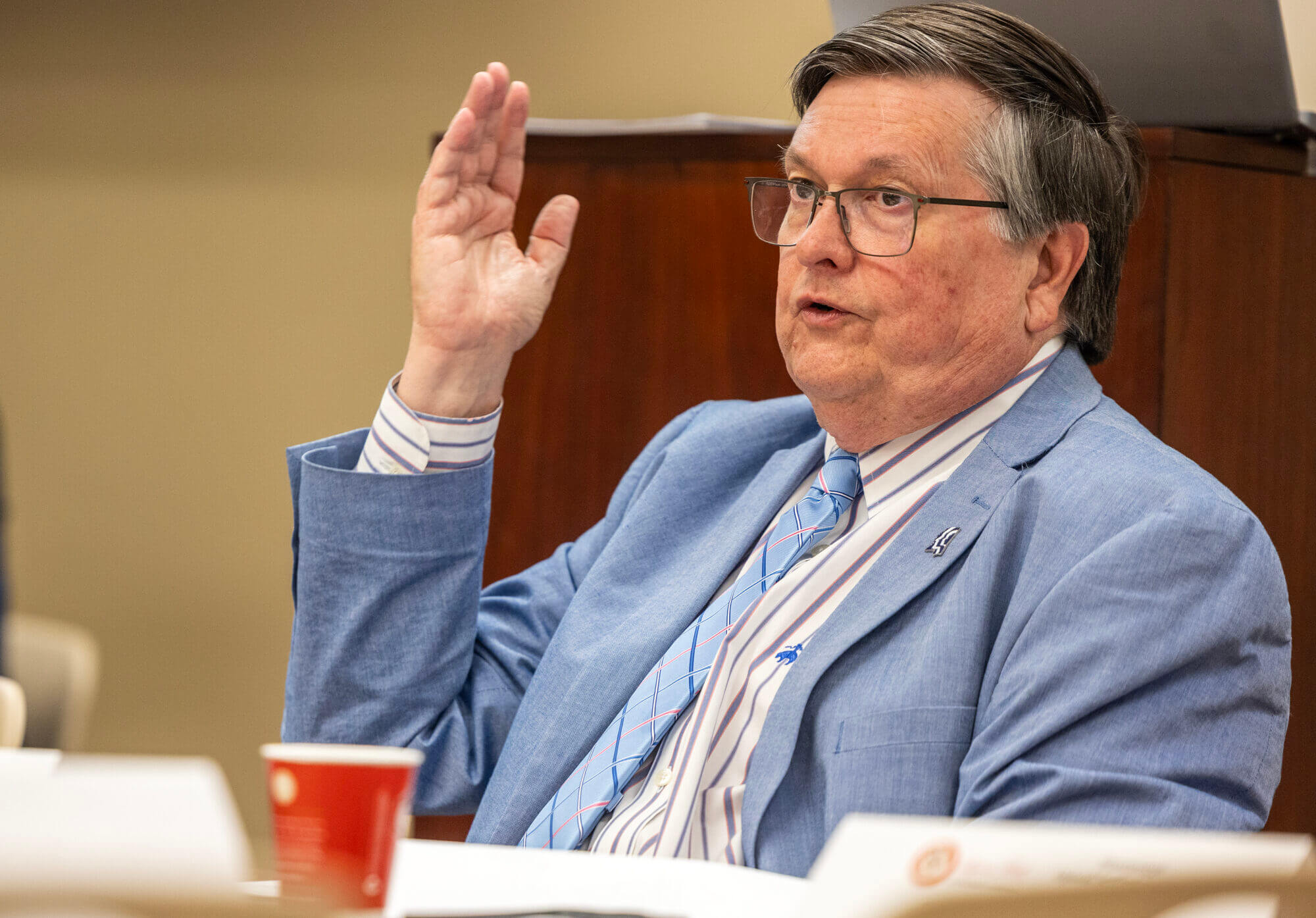
“I was on the prevention and treatment subcommittee that gave a very high score to the Department of Health project,” Taggart told the council members. The agency asked for about $5 million to expand addiction treatment in rural areas.
Taggart and his subcommittee colleagues scored the application one tier below the proposals most highly recommended to be funded. He seemed surprised to learn it wasn’t in the highest category.
“Maybe it is Tier 2,” Taggart said. “I gave you a high score, Dr. Edney.”
“Thank you,” Edney responded as other council members burst into laughter – the type of jesting common among people who work closely together. Knowing that the tiers and project recommendations were yet to be finalized, Taggart continued.
“My question is, can you help us better understand it?” he asked Edney. “I was impressed, because I knew the heart of what was intended. But I don’t know the mechanics of what was intended.”
Edney obliged, and went into further details about the project.
The opportunity to explain his application demonstrates one of the advantages of being an opioid settlement council member who represents an organization requesting part of the settlement money.
Just one floor below where the state’s most difficult legal questions are argued in front of state Supreme Court justices, multiple council members who represent opioid settlement applicants used time to further explain why proposals they closely work with deserved funding.
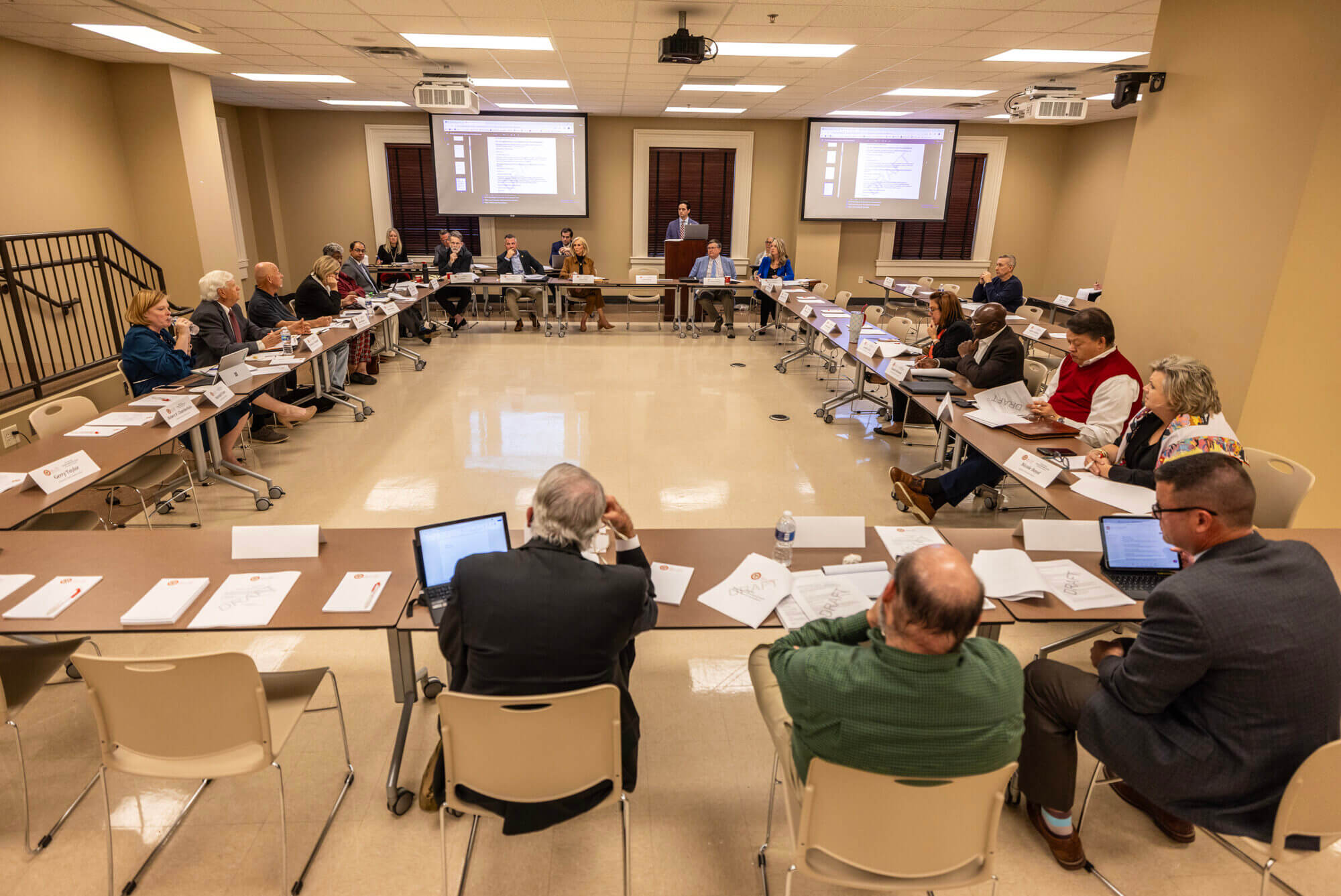
Those opportunities weren’t extended to applicants who didn’t have council representation, at least at the Nov. 3 meeting.
“That’s problematic,” Greg Spore, a state public defender and opioid settlement council member, said after the meeting. “Who’s lobbying for them?”
Of the roughly $142 million requested from applications scored in the top two tiers, over $94 million was sought by organizations with representatives who serve on the council.
When asked after the meeting about his back-and-forth with Taggart, Edney said he was not and will not be involved in scoring his department’s opioid settlement applications.
“I was answering questions that were posed to me,” he told Mississippi Today.
Taggart, who has for decades been involved in state Republican politics, said he deferred all public comments related to the council to its chair and vice-chairs — Attorney General Lynn Fitch, Department of Mental Health Executive Director Wendy Bailey, and Edney. Fitch’s office declined to speak on behalf of Taggart, and Edney and Bailey didn’t respond to Taggart’s email.
Each year since 2022, Mississippi has been paid tens of millions of opioid settlement dollars, money that is supposed to help respond to the overdose public health crisis. But 15% of those dollars — the money controlled by the state’s towns, cities and counties — is unrestricted and being spent with almost no public knowledge. Mississippi Today spent the summer finding out how almost every local government receiving money has been managing the money over the past three years.
Read The Series
The council, only a few months old, adopted a rule over the summer that prevents its members from voting on applications they’re closely associated with. But Matthew Steffey, a Mississippi College School of Law professor, said members have other avenues to lobby for projects they consider important.
Adopting rules that prohibit applicants from voting on their own applications is the absolute minimum ethical standard, Steffey said. It would be stronger, he said, to require applicants to leave the room whenever their applications are being discussed by the council.
“Most of the persuasion happens before the vote,” Steffey said.
Michelle Williams, Fitch’s chief of staff, said in an email to Mississippi Today that the council is made up of leaders from a variety of backgrounds related to addressing substance use disorder.
“These are also the people who may be best able to use the funds to continue their work responding to the opioid crisis for Mississippi and it would disadvantage the State’s response to prohibit them from applying,” Williams wrote.
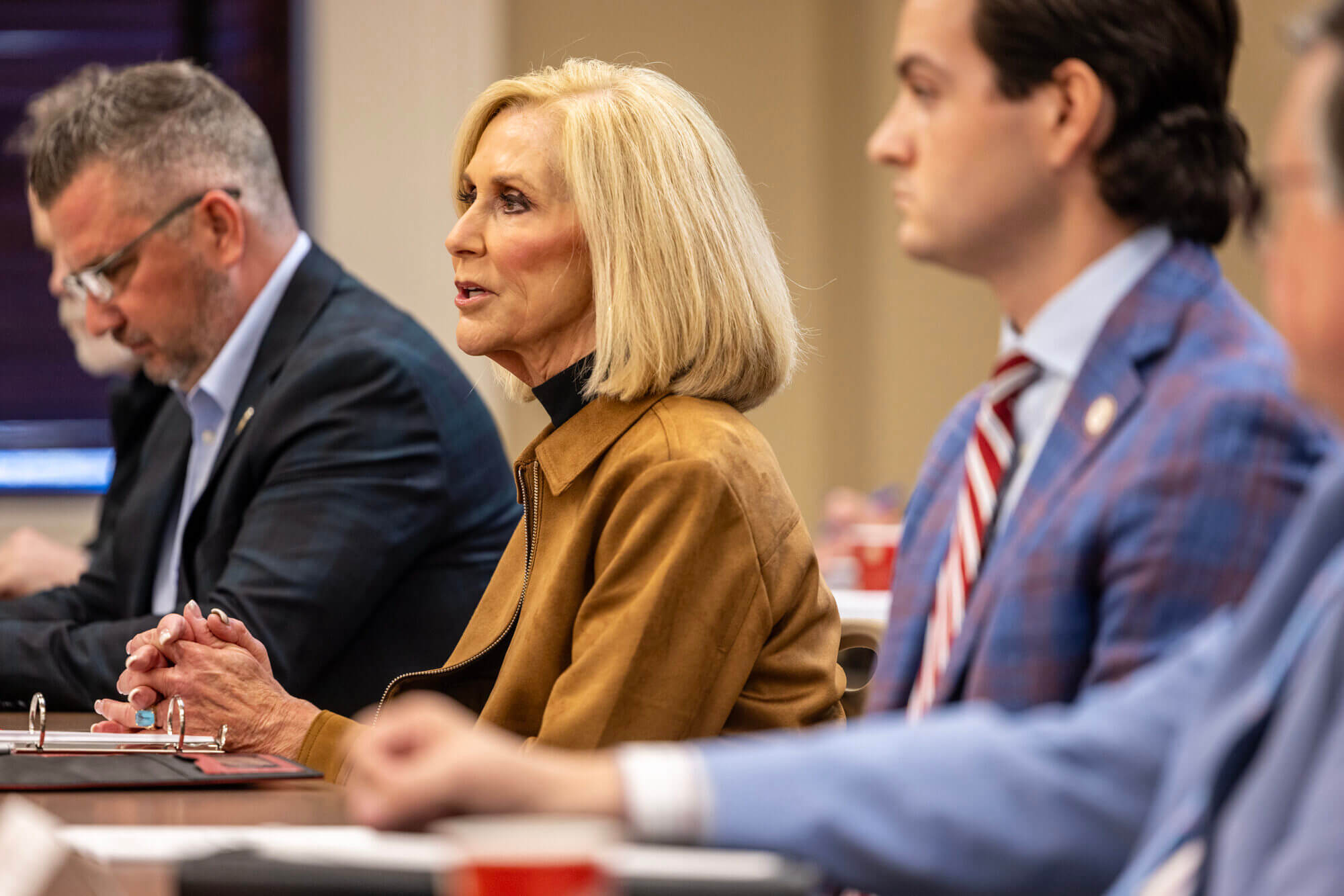
She added that many council members sought clarification from applicants throughout the review process, but she did not provide examples. Neither Fitch nor Williams answered Mississippi Today’s question asking whether the attorney general believes the council needs stronger rules on ethics.
Edney said he can’t speak to whether the process has been fair to applicants who don’t have council representation. Bailey echoed Williams’ sentiment in an email, saying it was always likely that council members would also be applicants.
Two of the Department of Mental Health’s three opioid settlement applications received the highest grades of the 126 proposals. Bailey said she is always open to reviewing and strengthening procedures to improve the council’s fairness and public confidence.
“We all share the same commitment to accountability and integrity in how these funds are allocated,” she said.
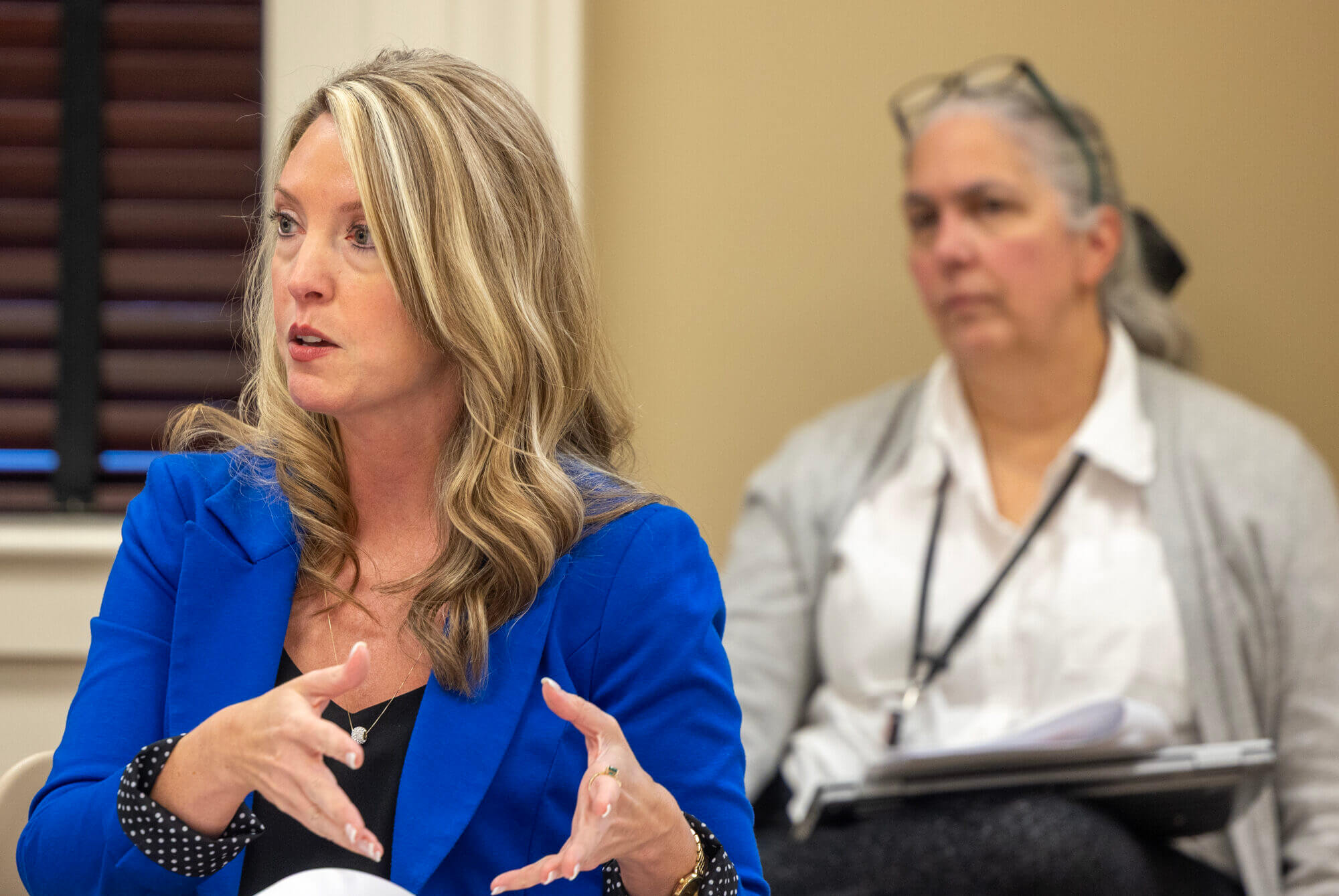
The council is set to meet again on Dec. 2, and members are expected to further discuss the applications ranked in the top two tiers and other applications the council flagged at the last meeting. The group is required by state law to finalize recommendations for the Legislature by Dec. 7 — 30 days before the start of 2026 regular legislative session.
Spore, the public defender, said he wishes many applicants ranked in lower tiers could further explain their proposals to the council so they could share why their aims are important and unique.
One of them was Grace House in Jackson, which offers affordable sober living as women recover from addictions. Spore said when he worked for the Hinds County Public Defender’s Office, one of his clients entered the program as a condition of receiving probation.
“She completed the program there, and she was thriving,” he said.
Grace House applied for $600,000 to create more treatment options for women who’ve recently finished intensive addiction rehabilitation. Stacey Howard, its executive director, said many Jackson-area programs that provided these services have shuttered in recent years because of funding challenges.
The council scored Grace House’s application in the third tier, and the proposal is unlikely to be discussed at the next meeting. Howard said she has received no information about why her organization received the grade it did.
Because the secondary program was aimed at people without health insurance, she thinks a rejected grant proposal would be a loss for the most financially vulnerable Mississippians.
“If you’ve got money, then you can afford to go places, even out of state if you need to, to get treatment,” Howard said.
Brittany Denson, the sober living home’s operations coordinator and former Grace House participant, said on-the-ground organizations like hers have important knowledge on the prevention, treatment and recovery needs — information the Department of Mental Health has said the state doesn’t have a comprehensive handle on. The settlement money could be an opportunity to further act on that knowledge.
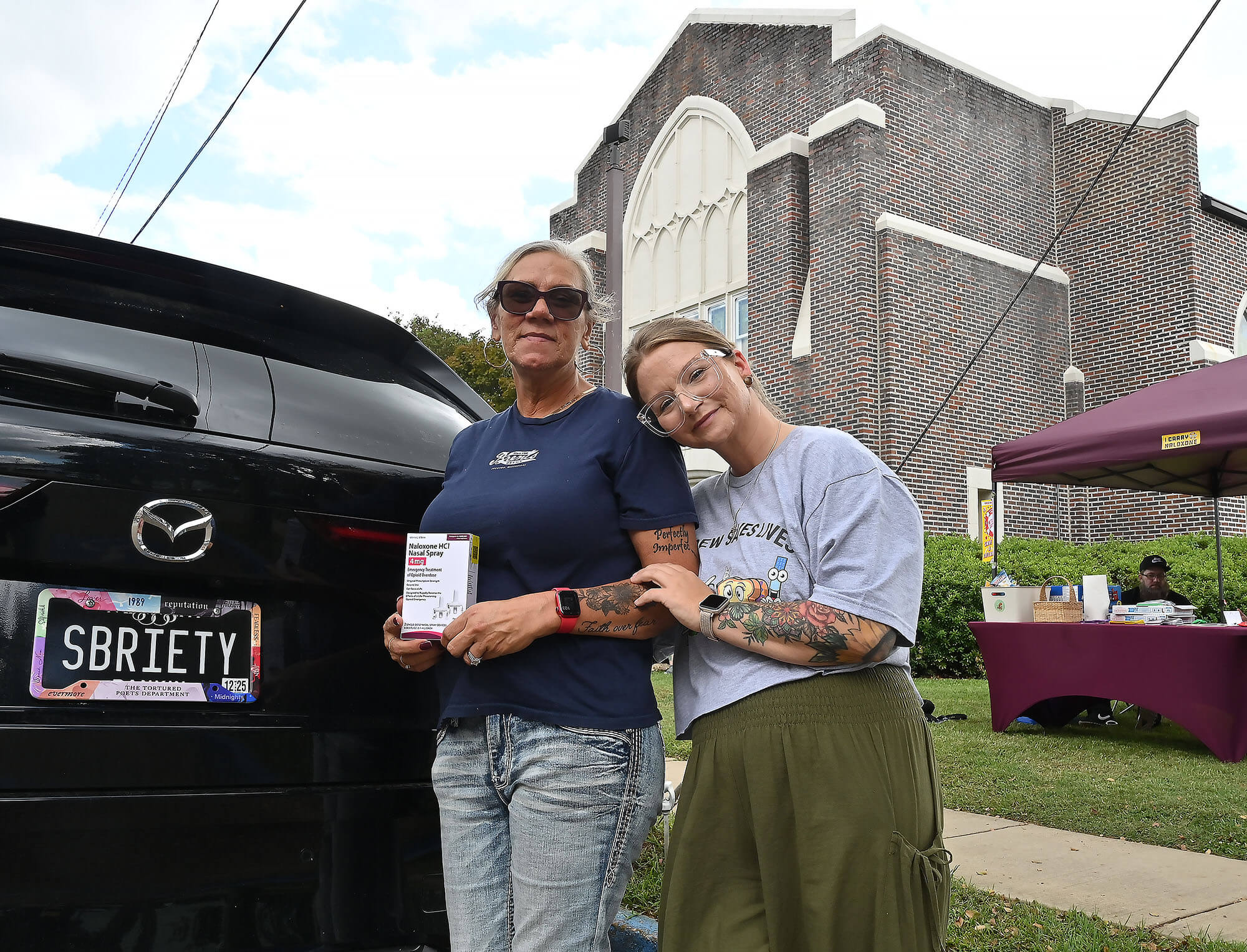
But she hasn’t seen Mississippi fund these types of efforts in the past, which makes her skeptical of the council’s aims.
“Of course, it’s unfair,” she said. “But that’s expected.”
‘We all have to have well-established practice’
Last spring, the Legislature instructed the settlement council to establish its members, solicit and review grant proposals and recommend to lawmakers which applications should be funded – all in the span of eight months. After multiple delays this summer, ranging from missing application materials to a cybersecurity hack, the committee released its application in August.
Groups had six weeks to read grant materials, develop an idea and fill out the application. Stacey Riley, chief executive officer for the Gulf Coast Center for Nonviolence, said the timeline felt rushed.
The center has a vending machine for naloxone, the opioid overdose-reversing medication, and works to address addiction among survivors of domestic violence. The application Riley submitted proposed a partnership between her organization and four others that serve South Mississippi communities — one that would expand trauma-informed addiction treatment, address other basic needs of those struggling with substance use disorder and work to address community stigma about drug use.
The application had a typo that resulted in final miscalculations of annual costs and total requests. But the two lines above the final calculation show the correct cost amount, according to a Mississippi Today review.
When the council released application grades a few hours before the Nov. 3 meeting, Riley found her proposal listed under “Incomplete Proposals.” The council’s document said the application had “facial deficiencies in the project budget.”
In a recent email to the council members, Fitch’s office said the application’s miscalculated budget figures is the reason why the Gulf Coast Center’s is listed as incomplete.
Riley said that if she had the opportunity to ask the committee questions about the review of her application, she would have. But the center doesn’t have a representative on the council.
The Administrative Office of Courts, however, did have a representative who could clarify its request for roughly $61 million to provide more financial assistance for its drug courts — the most money any applicant asked for. Fitch, Bailey and Edney reviewed that application and scored it in the second-highest tier, recommending only partial funding.
Early in the first November meeting, Mississippi Supreme Court Chief Justice and council member Michael Randolph said he and the other judges didn’t score the Administrative Office of Courts’ application.
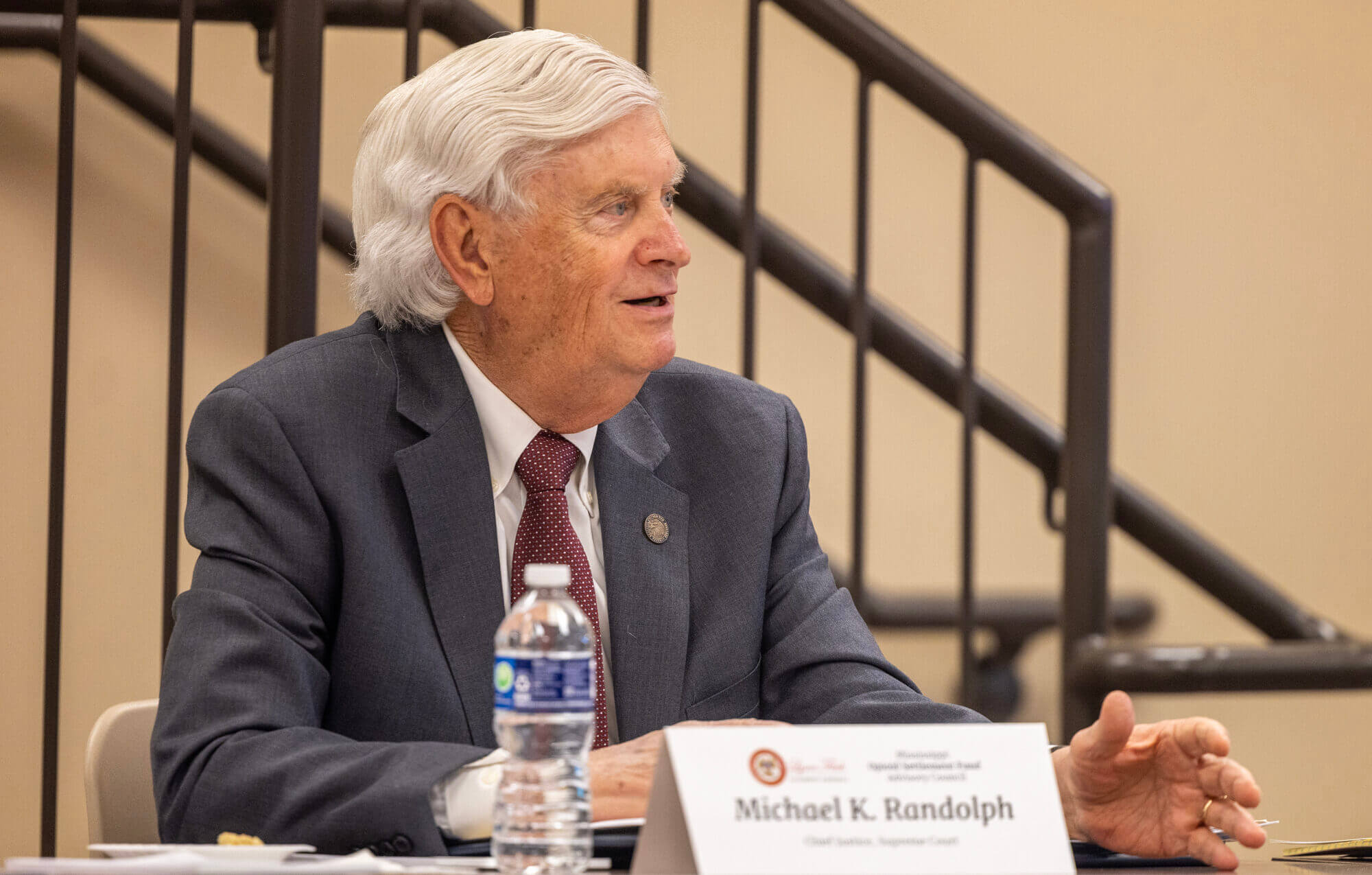
But he told the other members he was concerned about that application being scored below other applicants. He said he thought nearly no other applicants had as much hands-on time addressing substance use disorder as drug court employees.
“And yet they’re in Tier 2,” he said.
Minutes later, Taggart said he would like to see the courts’ application moved to the highest tier. Shortly after, Randolph called on the courts office’s director of intervention and treatment courts, Pam Holmes, from the audience to clarify council members’ questions.
“That’s not how funding decisions are supposed to be made,” Riley said when asked about the interaction. “We all have to have well-established practices that we do not engage in anything that even looks like a conflict of interest.”
After the meeting, Randolph told Mississippi Today that making sure these funds are spent appropriately is important to him, and it’s hard to know whether that will happen years down the line if private nonprofits get money. He said that won’t happen with the drug court application because of strict judicial oversight.
He also cited a pamphlet produced by the state judiciary office that says such courts have saved Mississippi taxpayers nearly $1.8 billion over 20 years, mostly by diverting people from prisons and jails.
“Any money that runs through the drug court is accounted for because we control it,” Randolph said.
Randolph also said not every council member pitched their proposal. Hattiesburg recovery advocate James Moore, whose son Jeffery died of an overdose, worked on a roughly $86,000 application to help fund and improve the weekly bike rides he hosts for those in addiction recovery. It scored in the second-lowest tier.
After the meeting, Moore said his application was so far down the list that he didn’t know whether bringing it up would have made a difference. But he also said it didn’t feel right to make an argument for his project when other organizations in similar situations didn’t have that opportunity.
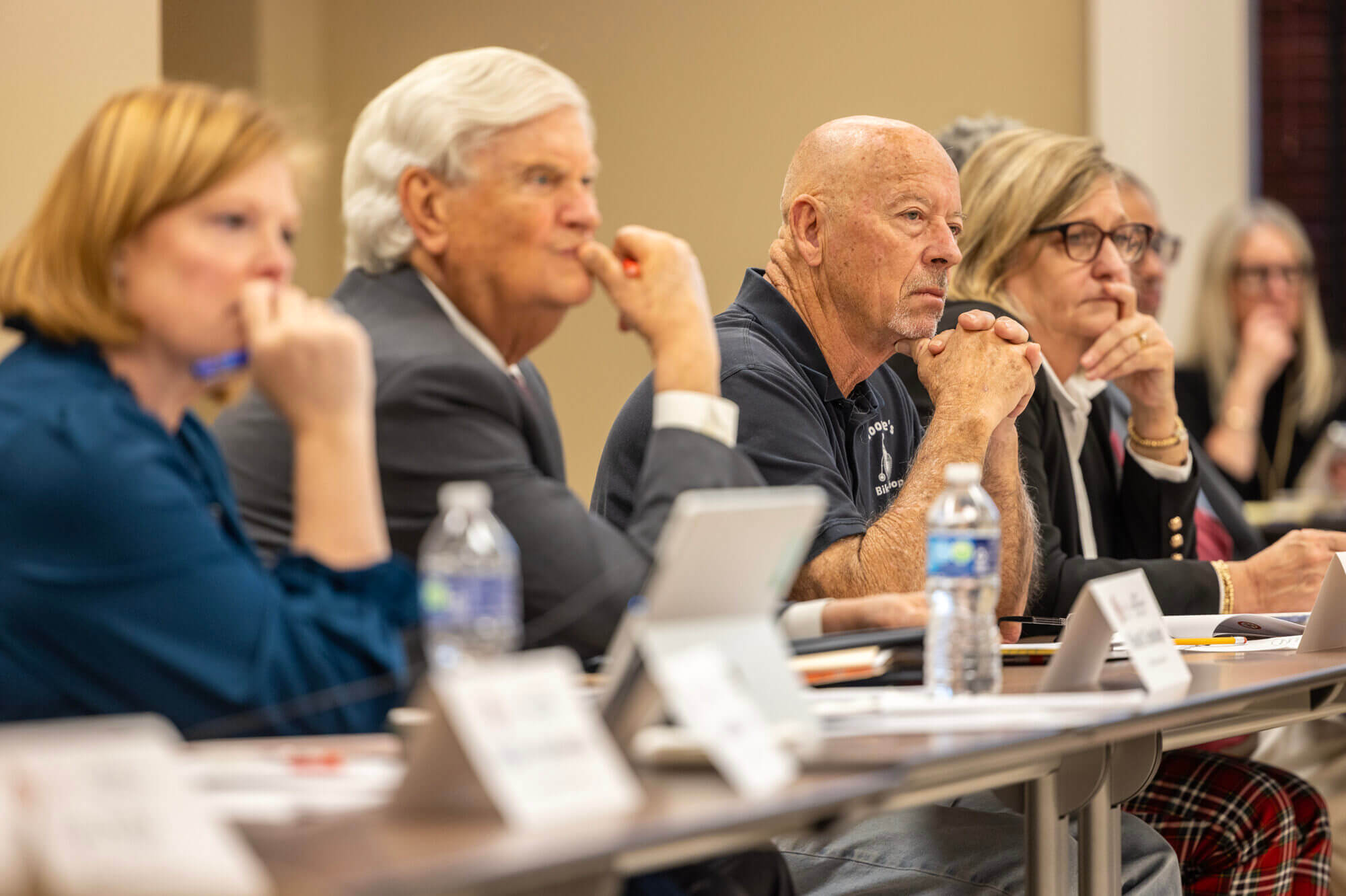
That decision could be costly. Moore said the account that funds his recovery rides and other efforts to prevent overdoses in the Pine Belt region, named in Jeffery’s honor, doesn’t have enough money to do much in the immediate future.
“I was asking for such a very small percentage of what’s available compared to what some of the other grants were seeking,” he said. “That was a little bit disheartening.”
Because Fitch allowed 30% of Mississippi opioid settlement funds to be spent on any public purpose, all of the national opioid settlement money the council oversees must be spent on one of the strategies the lawsuits list as addressing addiction. But unlike the applications from Moore, Grace House and Gulf Coast Center for Nonviolence, some proposals that will be further considered may not qualify.
Two proposals in the top two tiers seek funds for automated electronic defibrillators, purchases that aren’t very effective at responding to opioid overdoses because overdoses impact the respiratory system rather than the cardiovascular system. California’s state government has said AED purchases aren’t allowed by the settlements, and Pennsylvania’s says AEDs are not considered opioid remediation except in particular circumstances.
The Yazoo County Sheriff’s Department requested around $225,000 for license plate readers, tasers and two tablets. While the settlements’ lists mention some permitted uses for law enforcement, they’re focused on officer education and connecting people to treatment.
Fitch did not answer a question about whether she worried about Mississippi violating terms of the opioid settlement agreements. Williams reiterated that money the Legislature controls that isn’t overseen by the council can be spent on any public purpose.
In a recent email, Fitch’s office told council members that some projects that don’t qualify as addressing addiction “may be funded by the Legislature through a portion of the Fund.” But state law says money the Legislature oversees that doesn’t have to be used for addiction will be spent without recommendations from the council.
‘Once in a multi-generation opportunity’
Nabarun Dasgupta, a University of North Carolina Gillings School of Global Public Health senior scientist and recent MacArthur “Genius Grant” fellow, has used some of his state’s opioid settlement dollars to continue his lab’s work of determining what drugs are on the street and quickly getting that information to those most at risk of overdoses.
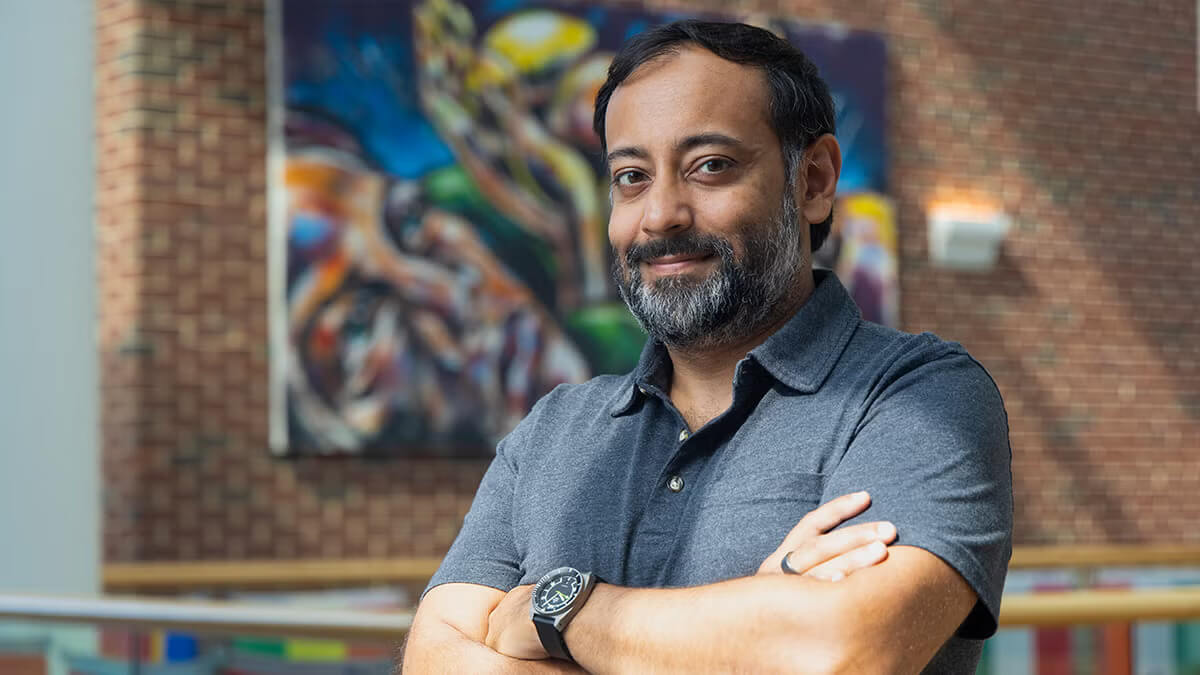
While that work is crucial, Dasgupta said it’s just as important to make sure the communities most impacted by the opioid epidemic — many of whom staff some of the small nonprofit organizations applying for dollars — get an opportunity to use this money. Those groups of people scarred by the epidemic will often be better positioned to make strides in ending the overdose crisis than the people in suits on Mississippi’s council, Dasgupta said.
“We sitting in offices and labs aren’t going to be the ones who do the last-mile outreach to get services where they need to go,” he said.
Without hearing from and investing in these last-mile providers, Dasgupta said he worries the money will be wasted — a disservice to those who’ve been suffering.
“This is a once in a multi-generation opportunity to address a longstanding social problem,” he said.
Denson, the Grace House operations coordinator, said the accountability she learned as a resident of the sober living home was crucial for her long-term recovery. She learned to cook for herself, got a job and felt like she became a productive member of society.
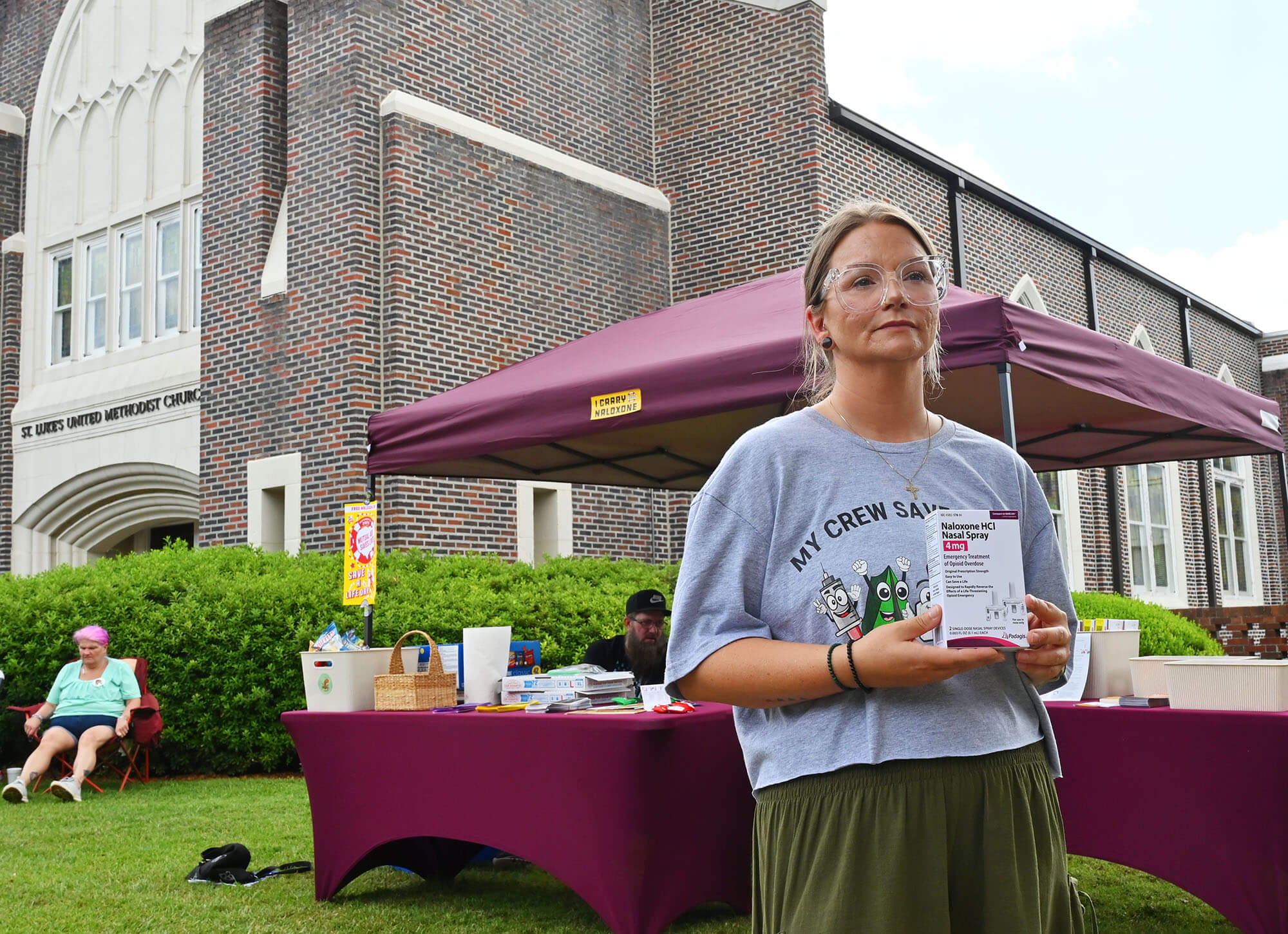
Organizations like Grace House have operated without opioid settlement funding for years, and Denson said she hopes that will continue even if the Legislature doesn’t invest in them. But she thinks discounting them for politically connected groups is a missed opportunity to end the public health crisis that has permanently taken many of her friends away.
“It’s going to kill people.”
Correction 11/18/2025: This story has been updated to reflect Dr. Dan Edney’s position as co-vice chair of the council.
- People in 15 counties can receive replacement SNAP benefits without application - February 6, 2026
- Retired Pittsburgh police commander is nominated as Jackson’s new police chief - February 6, 2026
- Local, state officials vet plans to secure Greenwood Leflore Hospital’s financial future - February 6, 2026